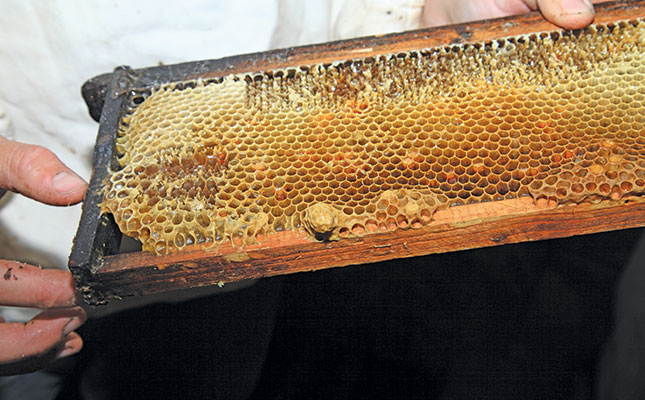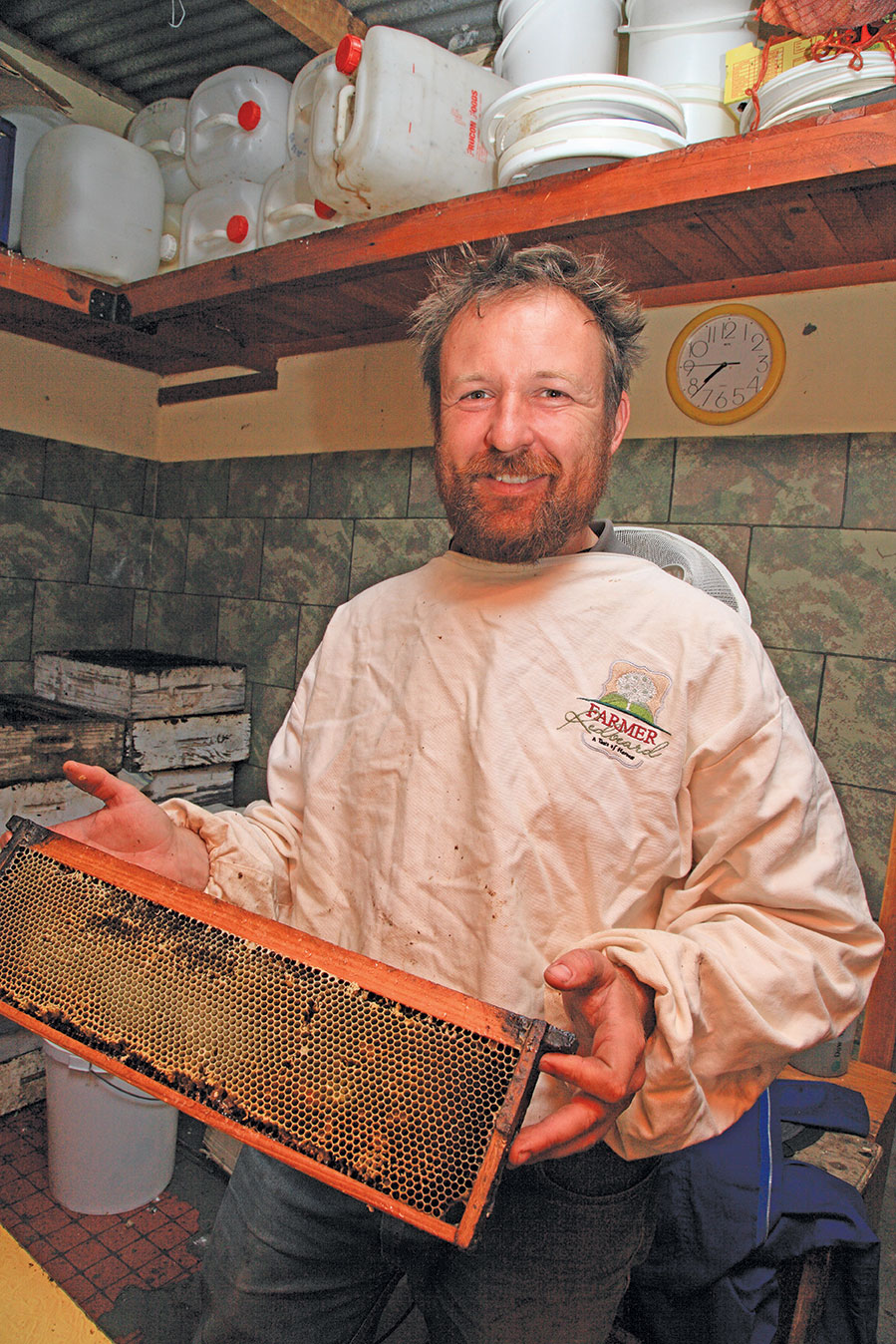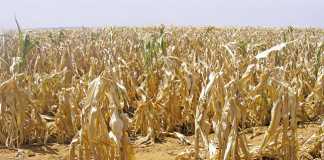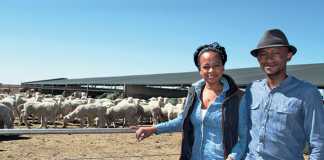
Photo: Glenneis Kriel
The beekeeping journey of the Van Zyls, who farm fruit, wine grapes and honey at Redbeard farm near Ashton in the Western Cape, started out as a holiday activity more than 30 years ago.
Albertus van Zyl, who was only nine years old at the time, suspects that his father, Louré, might have been rather bored while they were on a family holiday at Mossel Bay. So the two ended up helping the late Hannes Londt, a missionary who kept bees on his son’s farm near Gouritz, harvest honey.
The excursion turned into an annual ritual, and some years later Londt gave them 10 hives to start their own beekeeping operation on Redbeard farm.
“Hannes had over 50 years’ beekeeping experience, so we learnt everything we needed to be successful beekeepers from him,” says Van Zyl.

Their beekeeping enterprise gradually increased in size, reaching a maximum of 50 hives yielding about 1t of honey a year. Unfortunately, drought conditions in recent years reduced the availablity of forage for the bees, and in 2018 the Van Zyls were forced to downscale to just 20 hives.
Conditions have been more favourable this year, however, and they managed to harvest 300kg of honey in two weeks in October, equalling the entire harvest of 2019!
“The farm has about 20ha under irrigation, with the rest of our land spanning the Langeberg Mountains. Hannes calculated that we could keep up to 100 hives, but I think that would be pushing it, as the absence of access roads makes it difficult to move and work hives in these fynbos-covered mountains,” says Van Zyl.
Despite the drought, his bees have never suffered from major pests or diseases that required the use of antimicrobials or other harsh control measures. Van Zyl ascribes this to the farm being relatively isolated and to his strong focus on colony vigour.
Away from dangers
Redbeard farm is tucked away 4km beyond Ashton in Wilde Paarde Kloof in the Breede River Valley. This location results in low biosecurity risk: there is little chance of the bees making contact with organisms or substances carrying disease.
Van Zyl thinks this is one reason his bees have never struggled with American foulbrood, a disease that is thought to have wiped out almost 40% of the bee population in the Western Cape back in 2015.
Another advantage of the farm’s seclusion is that Van Zyl does not struggle with the vandalism and theft that have driven many beekeepers out of the industry over the past few years.
Finally, the bees are not exposed to harmful pesticides or herbicides, which could negatively affect their health.
“We farm as close to nature as possible in our orchards, using biological production methods, such as natural cover crops, to reduce evaporation, create a beneficial environment for soil organisms, and suppress weeds. In addition, we use only bee-friendly pest and disease management practices and products,” says Van Zyl.
He also monitors the hives to address potential problems before they grow out of control.
“To keep bees healthy and happy, it’s important to understand the way in which the colony functions. For instance, when there’s insufficient forage to sustain the colony, there’ll be fewer workers to protect it, rendering the colony more susceptible to pests like mites and beetles. One of our hives even had an ant infestation during the drought.”
An overabundance or absence of propolis (a resinous mixture created by bees through the mixing of plant resin, saliva and beeswax) is also an indication of an imbalance or problem in the hives.
“In the past, many farmers removed propolis in an attempt to keep their hives clean. Today, we know that it has antimicrobial and disinfecting properties that protect hives against bacteria and diseases, strengthen bee immunity and increase longevity.”
To address these imbalances, he tries to strengthen the colony by either moving the hives to an area with more forage, or merging struggling colonies.
“We avoid feeding the bees if we can, but will do so to strengthen colonies during a drought,” he says.
He inspects the hives regularly to identify and address problems before they get out of control.
“To ensure optimal living conditions, we inspect the hives thoroughly and repair them before spring, when the apricot trees flower. We also carry out routine maintenance if we detect problems during our weekly inspections,” he says.
A smoker fuelled with cow pats is used to pacify the bees while working with them. This mimics a forest fire, making the bees less defensive, but does them no harm.
Some beekeepers replace their queens every three to five years as they near the end of their lives and their egg-laying becomes irregular. Queens can be bought, or the farmer merely removes the queen to initiate the development of a new queen.
Van Zyl does not replace his queens, however, and leaves his colonies to take care of this themselves. He does, however, keep queen cells on hand in case he needs to start a new swarm, replace a non-functioning or dead queen, or place queen cells in a hive frame where there are none at all.
His greatest concern besides the drought is honey badgers, which damage hives when trying to get to the honey. Van Zyl overcomes this by placing the hives on 1,2m-high iron poles.
Honey sales
The Van Zyls have their own Wilde Paarde Kloof label, and sell honey directly from the farm and at a stall near Robertson.
“South Africa normally imports about 50% of its honey due to insufficient local production, and the drought has resulted in an even greater shortage in supplies,” says Van Zyl.
Wilde Paarde Kloof honey has a loyal following as the product is pure and unadultered. Van Zyl explains that the honey is not diluted with water or corn syrup as is done with some imported products, but merely filtered and bottled. The farm’s beeswax is also sold to the cosmetic market for the production of beauty creams and products.
Beekeeping forms an integral part of Redbeard farm’s ecotourism offering, which includes fruit picking, making preserves, beekeeping, hiking, swimming, mountain biking and farm tractor drives.
Van Zyl provides protective beekeeping gear for children aged three and up. His advice to aspiring beekeepers is to buy in good-quality hives or swarms from existing farmers or stockists and ensure that the hives are situated in a secure location with ample forage for the bees. They should also start small, building the operation thereafter as they become more proficient.
Email Albertus van Zyl at [email protected].











